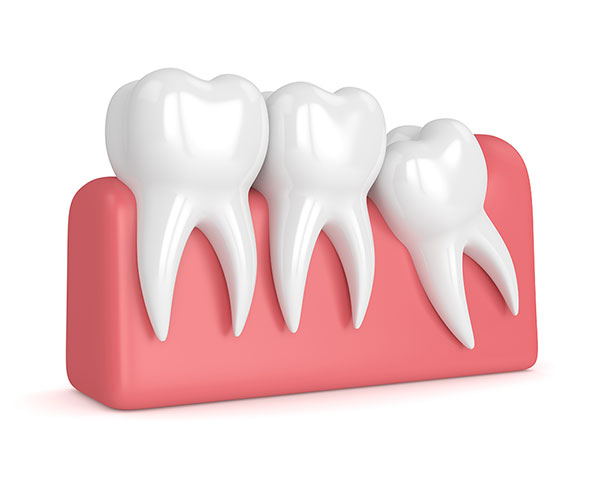“Wisdom teeth” are your 3rd molars that erupt around 16-20 years old. It is also possible to have wisdom teeth that never erupt into the mouth, and remain under the gums. Oftentimes there isn’t enough room in your mouth for these teeth, and they may need to be extracted before they cause you problems. Wisdom teeth impaction can lead to pain, swelling, dental infection, unexpected shifting of other teeth and even cavities on your second molars due to the close proximity.
Wisdom Tooth Extraction Procedure
Your wisdom teeth can be extracted by your dentist or an oral surgeon. The procedure can be done while you are awake or asleep, however, most patients are able to complete treatment while awake easily. This all depends on the difficulty of the extractions, how impacted they are, what location they are in, and the comfort of you and your dentist.
- To start, you may or may not be put to sleep with IV sedation
- Your dentist will use specialized tools to remove the wisdom teeth
- The extraction area may or may not be stitched up with dissolving stitches
- You will be given post op instructions for care
Benefits of Wisdom Tooth Extraction
- It may reduce your risk of dental infection
- A reduced risk of pain and swelling
- Minimize risk of misalignment or shifting of nearby teeth
- Removing wisdom teeth is easier when they are not infected (do it early before it becomes an issue)
Important Information
If you experience pain or swelling with your wisdom teeth, see your dentist right away.
- Wisdom teeth extraction recovery usually lasts only a few days
- Do not smoke or use a straw until fully healed
- It is often best to remove all of your wisdom teeth at once instead of just 1 or 2, because teeth only function with opposing teeth
- You may not have all 4 wisdom teeth, it is common for people to be missing 1, 2, 3 or all of their wisdom teeth in some cases.

